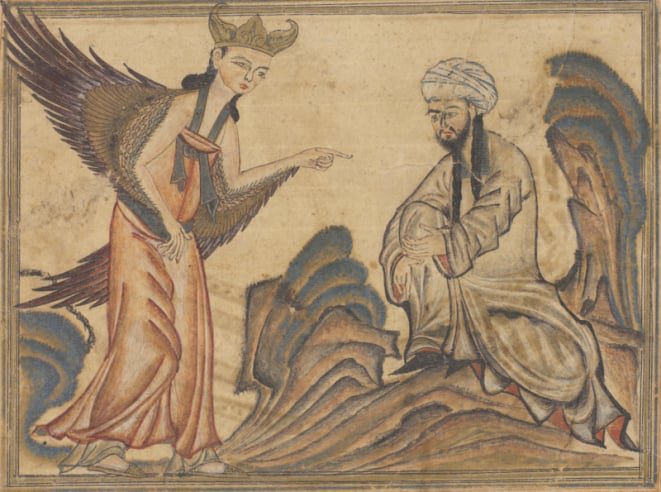Thread by Nicholas A. Christakis
- Tweet
- Aug 14, 2022
- #Music #ContentModeration
Thread
I find it odd that @BBC, in reporting on riots in India, says "The BBC is not repeating Ms Sharma's remarks as they are offensive in nature." Apparently, the remarks relate to info anyway available on wikipedia! en.wikipedia.org/wiki/Aisha How can BBC report news without such facts?
If someone says something that some people say is offensive, how can readers form their own view of the offensiveness, or the proportionality of the reaction, if they are not informed of the allegedly offensive statements? News agencies should do better.
Here is original BBC article: www.bbc.com/news/world-asia-india-61777306 Does anyone know what exactly Ms. Sharma said?
Meanwhile, people who are said to have incited riots (which is clearly bad) seem to have their homes destroyed rapidly and with minimal judicial process? Sectarianism is awful.
Meanwhile, people who are said to have incited riots (which is clearly bad) seem to have their homes destroyed rapidly and with minimal judicial process? Sectarianism is awful.
In another example, the BBC reports 'news' but fails to report the 'offensive' word, prejudging the possible conclusions readers might make, and removing a key part of the actual story. Does anyone know what the offensive word actually was? www.bbc.com/news/entertainment-arts-62383295
Very fine reporting and analysis by @RadTV @CNN that actually includes the allegedly offending word ('spaz') so readers can understand the controversy, plus good historical context and examples of the issue of revision of song lyrics. Kudos. www.cnn.com/2022/08/13/entertainment/beyonce-lizzo-song-lyric-changes-cec/index.html
A good reminder of a classic case of news outlets denying readers necessary information and even wrongly playing into hands of censors:
In this new article on a cancelation, @guardian commendably prints the words that were offensive and at root of the issue allowing readers to form an opinion ("fucking scruffy cunts") www.theguardian.com/food/2022/aug/16/penguin-cuts-off-meal-prep-king-cook-after-misogynistic-rant. One wonders why 'spaz' and claims re pederasty by Mohammed are verboten
In this article, www.usnews.com/news/entertainment/articles/2022-08-26/turkish-pop-star-jailed-over-joke-about-religio..., we're given enough info about the allegedly offensive joke (that a colleague musician's 'perversion' related to his having gone to a religious school in Turkey) to form our own opinion. Was it a “hate crime and a disgrace to humanity"?
In this article about the renaming of hundreds of places on Federal lands to remove a word (“squaw”) deemed offensive by many, the word is (commendably) noted so readers can understand what is being discussed. www.washingtonpost.com/opinions/2022/09/28/remove-racial-slur-federal-land-native-american/ Language evolves, over our history.
In this @nytimes article about the use of an ancient Persian artwork (showing Archangel Gabriel & the Prophet Mohammed) in an art history class at an American college, which prompted an absurd outcry, the Times failed to show the allegedly offensive image. www.nytimes.com/2023/01/08/us/hamline-university-islam-prophet-muhammad.html
To clarify, and to its partial credit, the image (plus two other ones of Mohammed) was available in a slide show after readers clicked on a blank image (this is not done for other potentially disturbing images the @nytimes generally shows, like of slaughter in war).
Commendably, here, @BBC described (but did not include) image causing offense to four Christians ("a poster of Demi Lovato wearing a bondage-style outfit on a crucifix-shaped bed"), though I wonder whether this has to do with group that was offended. www.bbc.com/news/business-64214750
To clarify this: what I meant is that, "commendably," BBC AT LEAST described the offensive image unlike some prior examples (see up thread), but they SHOULD have also included actual image. CNN gives more detailed description but also suppresses image www.cnn.com/2023/01/11/entertainment/demi-lovato-poster-banned-gbr-scli-intl/index.html
Mentions
There are no mentions of this content so far.


